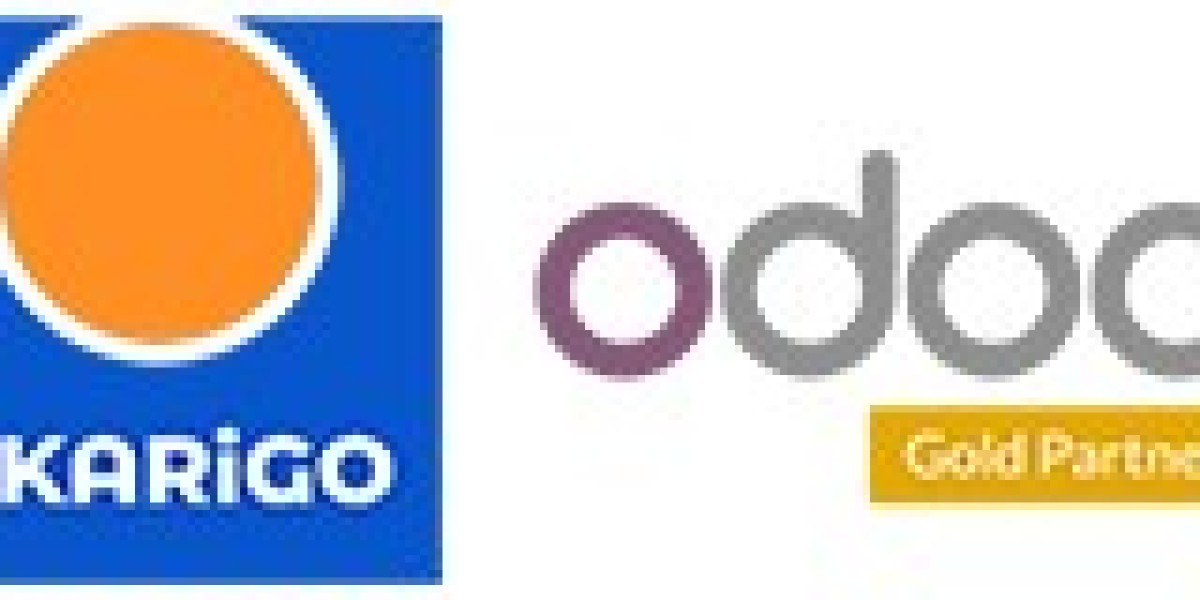Odoo is one of the most powerful and flexible open-source ERP systems, offering businesses across the UK a comprehensive solution for managing their operations. Whether you’re a small startup or a large enterprise, Odoo can be tailored to meet your specific needs. Customization is key to maximizing the benefits of this versatile platform, and choosing the right Odoo partner is critical to ensuring seamless integration and optimal performance.
In this blog, we will explore the top Odoo customizations in the UK that businesses are leveraging to enhance their operations. We’ll also guide you on how to choose the best Odoo partner for your business.

1. Custom Odoo Modules for Industry-Specific Needs
Odoo offers an extensive library of modules out of the box, covering everything from sales, accounting, and inventory to HR and project management. However, businesses in the UK often require additional functionality tailored to their specific industry.
Common Industry-Specific Customizations:
- Manufacturing and Production: Custom modules for production scheduling, supply chain optimization, and quality control.
- Retail and E-commerce: Integration with e-commerce platforms like Shopify and custom point-of-sale (POS) systems.
- Healthcare: Patient management, billing, and regulatory compliance features.
- Education: Student enrollment, fee management, and course scheduling.
2. Enhanced Reporting and Analytics
One of the standout features of Odoo is its real-time reporting and analytics tools. However, businesses often need custom reports that go beyond the standard options. Custom reporting allows you to gain deeper insights into your business data, track key performance indicators (KPIs), and make data-driven decisions.
Custom Reports Can Include:
- Financial Dashboards: Tailored to track revenue, expenses, and profitability.
- Sales Performance Analysis: Specific to sales teams or regions.
- Inventory Analytics: Real-time tracking of stock levels, reordering points, and supplier performance.
- Custom Forecasting Models: Using historical data to forecast demand and plan production.
3. Integration with Third-Party Applications
Odoo’s ability to integrate with third-party applications is crucial for businesses looking to streamline their operations. Custom integrations with tools like CRM systems, HR software, accounting platforms, and e-commerce solutions can improve efficiency and eliminate manual data entry.
Popular Integrations Include:
- Payment Gateways: PayPal, Stripe, and local UK payment providers for seamless transactions.
- Bank Integration: Automatic reconciliation with your bank accounts to streamline financial management.
- Shipping Providers: Integrating with UK carriers like Royal Mail, Hermes, and DPD for real-time shipping rates and tracking.
4. Custom Workflows and Automations
Odoo comes with a wide range of workflows, but many businesses in the UK need custom workflows to automate repetitive tasks and improve productivity. This can include automating invoicing, payment reminders, inventory management, or customer support processes.
Examples of Workflows:
- Automated Invoicing: Automatically generate and send invoices when sales orders are confirmed.
- Purchase Orders: Automatically create purchase orders based on stock levels or forecast demand.
- Customer Communication: Automated follow-up emails after sales and service engagements.
5. Mobile App Customizations
As businesses in the UK continue to rely on mobile solutions, ensuring that Odoo works seamlessly on mobile devices is a key customization. Odoo offers mobile apps for sales, CRM, and other key modules, but businesses often need custom mobile functionality to support their field teams or sales representatives.
Key Mobile Customizations:
- Offline Capabilities: Ensure that mobile apps work even without an internet connection.
- Field Data Collection: Custom forms for field agents to collect customer data or perform inspections.
- Real-Time Syncing: Sync mobile data with the main Odoo database for instant updates.
6. User Interface (UI) and User Experience (UX) Design
While Odoo has a clean, user-friendly interface, businesses often need further customization to make it more intuitive for their teams. Customizing the user interface to reflect your company’s branding, simplifying navigation, or optimizing for specific user roles can improve user adoption and efficiency.
UI/UX Customization Ideas:
- Branding and Theming: Modify colors, fonts, and logo placement to reflect your company’s identity.
- Role-Based Dashboards: Custom dashboards for different departments or roles, offering quick access to relevant data.
- Simplified Navigation: Custom menus and shortcut buttons for frequently used features.
7. Multi-Currency and Multi-Language Support
For businesses in the UK with international clients or operations, multi-currency and multi-language support are essential customizations. Odoo supports multi-currency out of the box, but businesses may need further configuration to handle currency conversions, taxes, and exchange rates across regions.
Custom Multi-Currency Features:
- Real-Time Exchange Rate Updates: Integrating with exchange rate providers to get the latest currency values.
- Multi-Language Setup: Custom language packs for your users, particularly useful if you operate in diverse markets across the UK or globally.
8. Custom Security Features
Security is a top priority for any business, and while Odoo offers robust security features, businesses often require additional layers of protection for sensitive data. Custom security measures could include advanced user role permissions, data encryption, or enhanced auditing.
Popular Custom Security Features:
- Advanced Role-Based Access Control: Limit access to sensitive financial data or employee information based on user roles.
- Data Encryption: Implement end-to-end encryption for sensitive documents.
- Two-Factor Authentication (2FA): Add an extra layer of security for users accessing the system remotely.
Choosing the Best Odoo Partner in the UK
When considering Odoo customization for your business, partnering with the best Odoo partner in the UK is crucial to ensure successful implementation. The right partner will provide expertise in customizing Odoo according to your needs, integrating it with your existing systems, and providing ongoing support.
Here’s what to look for when choosing an Odoo partner:
- Proven Expertise: Ensure that the partner has experience in your industry and has successfully customized Odoo for similar businesses.
- Certifications: Look for Odoo-certified partners who have undergone rigorous training and demonstrate a strong understanding of the platform.
- Client Testimonials: Check for positive feedback from other UK businesses who have worked with the partner.
- Post-Implementation Support: Make sure the partner offers ongoing support and maintenance after the customization is complete.
- Clear Communication: A reliable partner should communicate regularly and clearly about timelines, expectations, and costs.
Conclusion
Odoo’s flexibility makes it a perfect ERP solution for UK businesses of all sizes. By customizing Odoo to suit your business’s unique requirements, you can streamline processes, improve efficiency, and gain valuable insights into your operations. However, to truly unlock its potential, working with a trusted Odoo partner is essential. With the right expertise, you can create a tailored solution that will drive growth and success for your business in the UK.
Whether you’re in manufacturing, retail, healthcare, or any other industry, the possibilities for Odoo customization are vast, and the right partner can make all the difference in your implementation journey.








